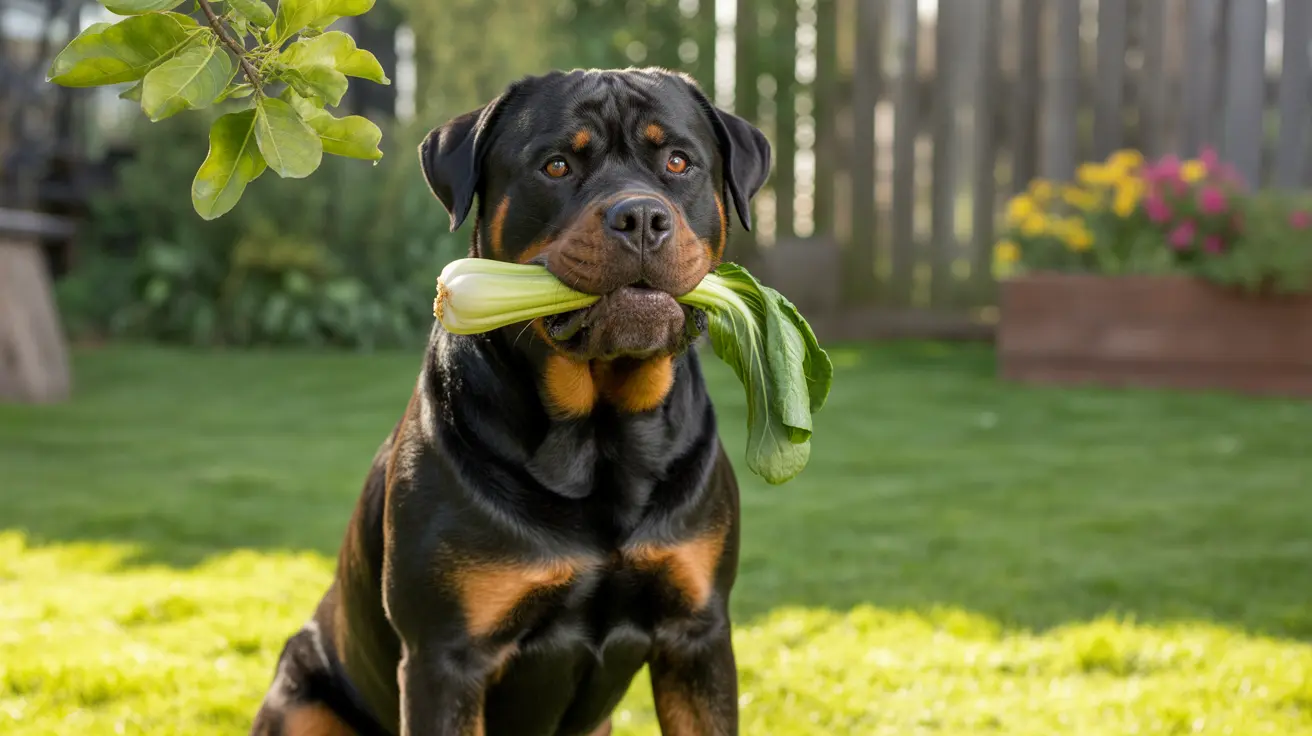Introduction
If you're looking to add some nutritious variety to your dog's diet, you might be wondering, "Can dogs have bok choy?" The good news is that this crisp, nutrient-rich Chinese cabbage can be a healthy addition to your canine companion's meal plan when properly prepared and served in moderation.
This comprehensive guide will explore the benefits, risks, and best practices for feeding bok choy to your dog, ensuring you can make informed decisions about incorporating this vegetable into your pet's diet.
Health Benefits of Bok Choy for Dogs
Bok choy offers an impressive array of nutrients that can support your dog's health in multiple ways:
Essential Vitamins and Minerals
This leafy green is packed with vitamins A, C, and K, which support immune function, vision, and bone health. It also contains important minerals like calcium and potassium, contributing to strong bones and proper muscle function.
Weight Management Support
With its low calorie content and high water volume, bok choy makes an excellent treat option for dogs who need to maintain a healthy weight or lose excess pounds.
Digestive Health Benefits
The natural fiber content in bok choy can help regulate your dog's digestive system and promote healthy bowel movements.
Safe Preparation and Serving Guidelines
Cooking Methods
Always cook bok choy before serving it to your dog. Steaming or boiling are the best preparation methods, as they maintain nutritional value while making the vegetable easier to digest.
Proper Portioning
Cut cooked bok choy into small, manageable pieces appropriate for your dog's size. This helps prevent choking and ensures easier digestion.
Serving Size
Follow the 10% rule: treats, including bok choy, should make up no more than 10% of your dog's daily caloric intake.
Potential Risks and Precautions
Watch for Digestive Issues
Some dogs may experience stomach upset when first introduced to bok choy. Start with very small amounts and monitor your pet's reaction.
Avoid Seasonings
Serve bok choy plain, without any added oils, spices, or seasonings that could harm your dog.
Special Considerations
Dogs with certain health conditions, such as sensitive stomachs or thyroid issues, should only consume bok choy with veterinary approval.
Best Practices for Feeding Bok Choy
Introduction Tips
Start by offering a small piece of cooked bok choy as a treat, watching for any adverse reactions over the next 24 hours.
Regular Feeding Schedule
If your dog tolerates bok choy well, you can offer it as an occasional treat 2-3 times per week.
Frequently Asked Questions
Can dogs safely eat bok choy, and what are its health benefits?
Yes, dogs can safely eat bok choy when it's properly prepared. It provides vitamins A, C, and K, minerals like calcium and potassium, and beneficial fiber for digestive health.
How should I prepare bok choy before giving it to my dog to avoid choking or digestive issues?
Steam or boil the bok choy until tender, then cut it into small, bite-sized pieces appropriate for your dog's size. Never serve it raw or with seasonings.
Are there any risks or allergic reactions I should watch for when feeding my dog bok choy?
Watch for signs of digestive upset, such as vomiting or diarrhea, and allergic reactions like itching or hives. If any symptoms occur, discontinue feeding and consult your veterinarian.
How much bok choy can I feed my dog, and how often should it be given?
Bok choy should make up no more than 10% of your dog's daily caloric intake. Start with small amounts 2-3 times per week and adjust based on your dog's tolerance.
Is cooked bok choy better for dogs than raw, and can puppies or small breeds eat it safely?
Cooked bok choy is always safer than raw for all dogs, including puppies and small breeds. It's easier to digest and poses less choking risk. Always cut it into appropriately sized pieces for your dog's size.
Conclusion
When properly prepared and served in moderation, bok choy can be a nutritious addition to your dog's diet. Remember to always introduce new foods gradually, monitor your pet's response, and consult with your veterinarian if you have specific concerns about your dog's dietary needs.






